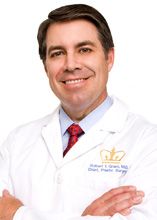Article
Plastic Surgery Isn't Child's Play for Teens
Author(s):
Allowing teens and young adults to boost their confidence through cosmetic enhancements is an amazing gift, but cosmetic surgery is not child's play.

Adolescence is an extremely tenuous time in a child’s life. Confidence hangs by a thread when image is everything, and if a preteen or teen is wearing last year’s trend, they’re left behind.
But what if a child’s confidence is hindered by a part of his or her own body and he or she wants to change it? Then that child is not alone.
According to the American Society of Plastic Surgeons (ASPS) 2012 Plastic Surgery Report, more than 235,000 13- to 19-year-old patients underwent plastic surgery procedures last year. Some of the most popular surgical procedures among teens include rhinoplasty, gynecomastia, and otoplasty, while the top non-surgical or minimally invasive procedures for teens include laser hair removal, laser skin resurfacing, and microdermabrasion. The last two are logical choices for teen patients who have suffered from acne or cystic acne.
Overall, these popular surgical and non-surgical procedures are understandably focused around the most prevalent part of an adolescent’s body: the face. A teen’s facial appearance is one of the biggest components of making a first impression. Confidence can be quickly restored in teenagers who actually feel good about themselves and the way they look. This confidence can be carried forward and conveyed to their peers, lessening the chance of bullying or other mentally harmful teenage hazing traditions.
If medical science can give this gift to adolescents in a responsible manner through minimally invasive procedures, then why not forge ahead with it? However, the flip side of the coin is just a tad alarming.
Last year, more than 17,000 teenagers received Botox injections, and another 6,100 received injectable fillers. Even with the medical benefits that certain injectables provide — such as Botox’s link to helping relieve migraines and muscle spasms — child and teenage beauty queens are utilizing the treatments to give them an edge on the pageant circuit, which is an alarming trend.
The same could be said for surgical procedures, as more than 8,200 breast augmentations and 3,100 liposuction procedures were performed on the same age group last year. These young people have their whole lives ahead of them to shape their minds and bodies in a natural way, and while boosting a teenager’s confidence is an amazing feat, these are highly invasive surgical procedures. Why not encourage them to make a life-changing breast augmentation after they’ve experienced the world outside of high school, or resort to liposuction after they’ve tried a few exercise and diet regimens?
In a briefing paper relating to teens receiving plastic surgery, the ASPS noted that “not every teenager seeking plastic surgery is well-suited for an operation, (as) teens must demonstrate emotional maturity and an understanding of the limitations of plastic surgery.” The ASPS also cautioned “plastic surgery is real surgery with great benefits, but also carries some risks.”
“Teens should have realistic expectations about plastic surgery and what it can do for them,” the ASPS said in a statement. “In addition, certain milestones in growth and physical maturity must be achieved before undergoing plastic surgery.”
I whole-heartedly support that sentiment. Allowing teens and young adults to boost their confidence through cosmetic enhancements is an amazing gift, but cosmetic surgery is not child’s play. Any child or teen who’s thinking about electing for a plastic surgery procedure must have a clear understanding of all the risks, as well as the rewards.
Robert T. Grant, MD, MSc, FACS, is Chief of the combined Divisions of Plastic Surgery at New York-Presbyterian Hospital-Columbia University Medical Center and New York-Presbyterian Hospital-Weill Cornell Medical Center. He is also Associate Clinical Professor of Surgery in the College of Physicians and Surgeons at Columbia University and Adjunct Associate Professor of Clinical Surgery at Weill Cornell Medical College. For more information about Dr. Grant or to contact him, visit his website at www.robertgrantmd.com.




